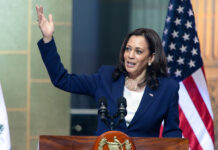
In a move that has sent ripples through the political waters of New Hampshire, Democratic Congresswoman Annie Kuster announced her retirement after six terms in office. Representing New Hampshire's 2nd Congressional District since 2013, Kuster's departure marks a significant moment for both her party and potential Republican contenders eyeing the now-open seat.
Kuster, at 67, has been a prominent figure in the House, leading the New Democrat Coalition, a group known for its centrist and pro-business stance. Her leadership and advocacy on issues such as the opioid crisis and sexual assault prevention have positioned her as a key player in bipartisan efforts. However, her decision to step back from politics to focus on personal life and family has opened up discussions about the future of New Hampshire's political landscape.
New Hampshire Democratic Rep. Annie Kuster joins growing list of lawmakers not seeking re-election in 2024 https://t.co/NmAvs3gmOY pic.twitter.com/Mij7GC38YB
— New York Post (@nypost) March 28, 2024
The congresswoman's announcement is particularly noteworthy given the diverse and wide-ranging constituency of NH-02, stretching from Nashua to the Canadian border. This diversity has historically allowed for a competitive political environment, one that Kuster navigated successfully for over a decade. With her retirement, the district faces an uncertain future, with several Democrats likely to step forward, turning the upcoming election into a closely watched battle.
From a conservative viewpoint, Kuster's retirement presents a unique opportunity. The open seat could lead to a more competitive race come November, offering Republicans a chance to reclaim a district that has been under Democratic control since Kuster's election in 2013. Her absence as a six-term incumbent removes a significant advantage for the Democrats, leveling the playing field for potential Republican candidates.
👀Within an hour of Annie Kuster's retirement announcement, former gubernatorial candidate, Executive Councilor, and Congressional District 2 resident Colin Van Ostern re-emerges on his official political account to congratulate her.
The account's last tweet? 2020. #NHPolitics https://t.co/OyD0vkSECB
— Ethan DeWitt (@edewittNH) March 27, 2024
Moreover, Kuster's role in leading a centrist, pro-business coalition raises questions about the direction of the Democratic Party in her district and whether her successor will continue on this path or veer towards the party's more progressive wing. This shift could further influence the district's moderate voters, potentially swaying the election in favor of a Republican candidate who can appeal to this demographic by emphasizing economic policies and bipartisan cooperation.
Kuster's commitment to remain active in supporting Democratic candidates and causes, despite stepping away from the electoral arena, suggests she will continue to wield influence in New Hampshire politics. However, her focus on personal life and acknowledgment of a life outside politics resonate with many Americans' desire for their representatives to understand and value life beyond the political sphere.
As the race for New Hampshire's 2nd Congressional District heats up, all eyes will be on the candidates vying to fill Kuster's shoes. For conservatives, the upcoming election represents not just a chance to secure a seat but an opportunity to make inroads in a state that has seen its share of tight races. With Kuster's retirement, the political scene in New Hampshire is poised for change, and Republicans are keen to seize the moment, advocating for policies that resonate with the district's constituents and reflect the values of the Granite State.
In conclusion, Annie Kuster's retirement is more than just the end of an era for New Hampshire Democrats; it's a pivotal moment that could redefine the state's political future. As the campaign season unfolds, the strategies, platforms, and appeal of the candidates will determine whether Kuster's departure will indeed be the shockwave that shifts the balance of power in NH-02.










